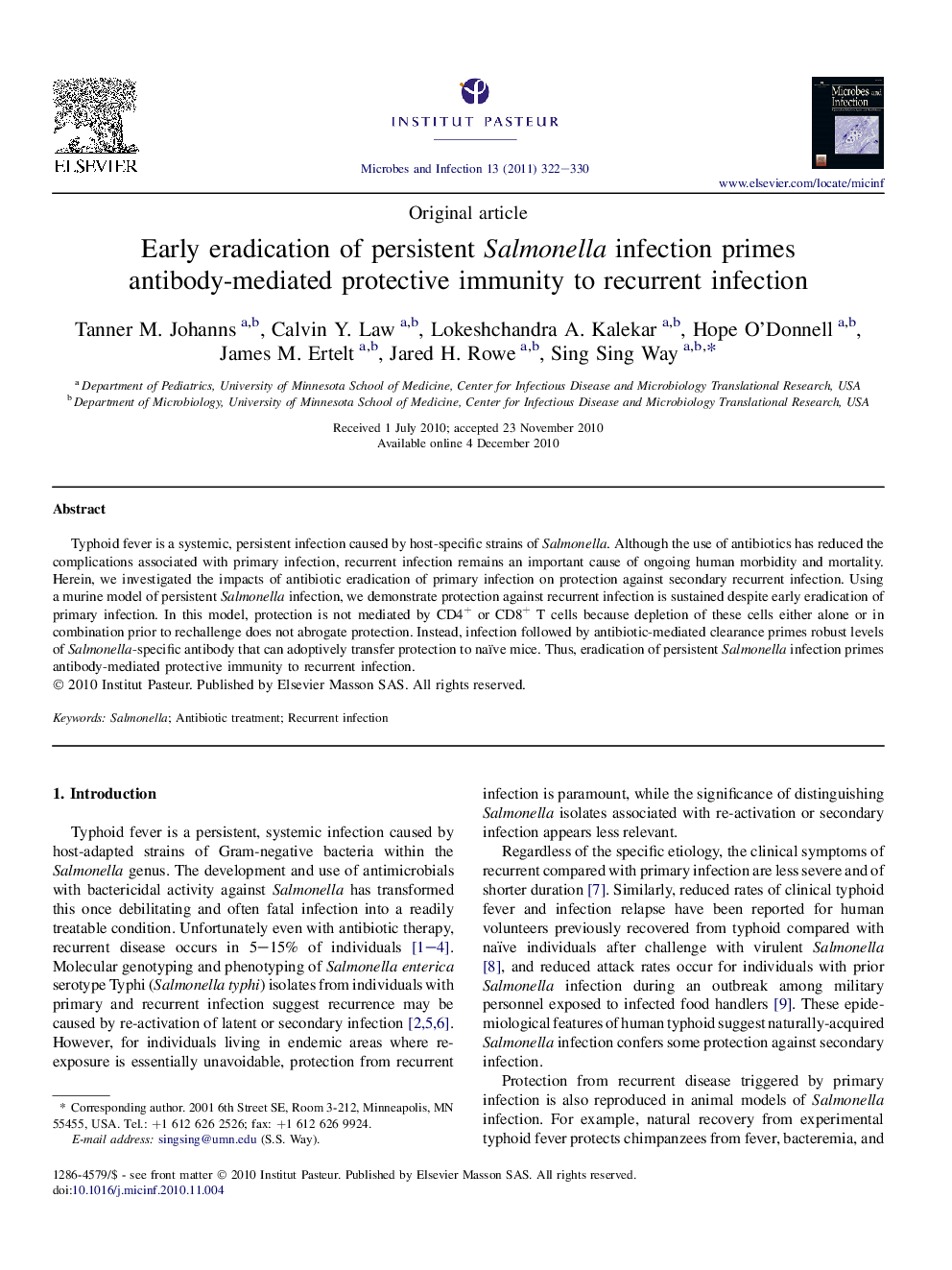| Article ID | Journal | Published Year | Pages | File Type |
|---|---|---|---|---|
| 3415063 | Microbes and Infection | 2011 | 9 Pages |
Abstract
Typhoid fever is a systemic, persistent infection caused by host-specific strains of Salmonella. Although the use of antibiotics has reduced the complications associated with primary infection, recurrent infection remains an important cause of ongoing human morbidity and mortality. Herein, we investigated the impacts of antibiotic eradication of primary infection on protection against secondary recurrent infection. Using a murine model of persistent Salmonella infection, we demonstrate protection against recurrent infection is sustained despite early eradication of primary infection. In this model, protection is not mediated by CD4+ or CD8+ T cells because depletion of these cells either alone or in combination prior to rechallenge does not abrogate protection. Instead, infection followed by antibiotic-mediated clearance primes robust levels of Salmonella-specific antibody that can adoptively transfer protection to naïve mice. Thus, eradication of persistent Salmonella infection primes antibody-mediated protective immunity to recurrent infection.
Related Topics
Life Sciences
Immunology and Microbiology
Immunology
Authors
Tanner M. Johanns, Calvin Y. Law, Lokeshchandra A. Kalekar, Hope O'Donnell, James M. Ertelt, Jared H. Rowe, Sing Sing Way,
